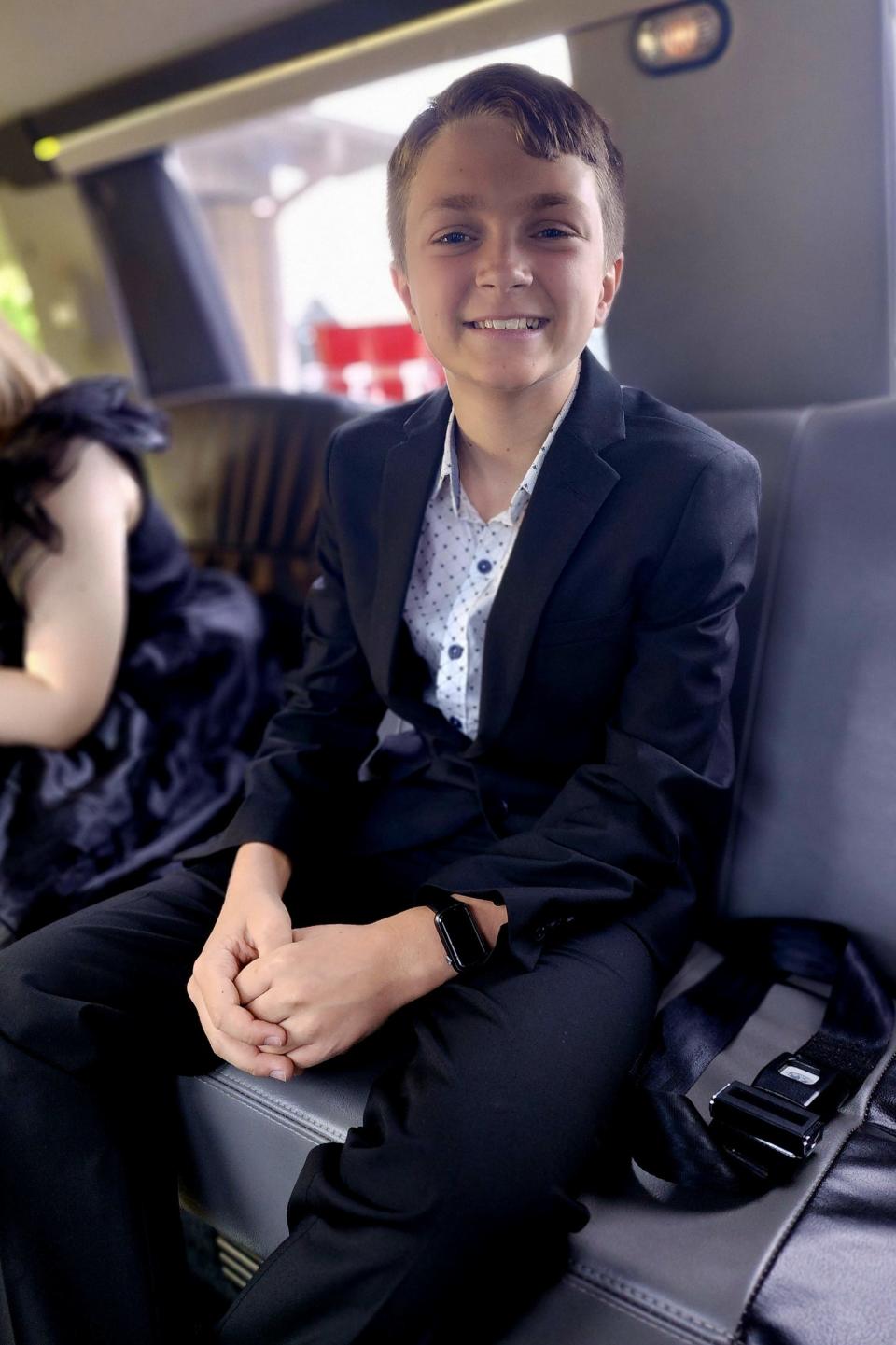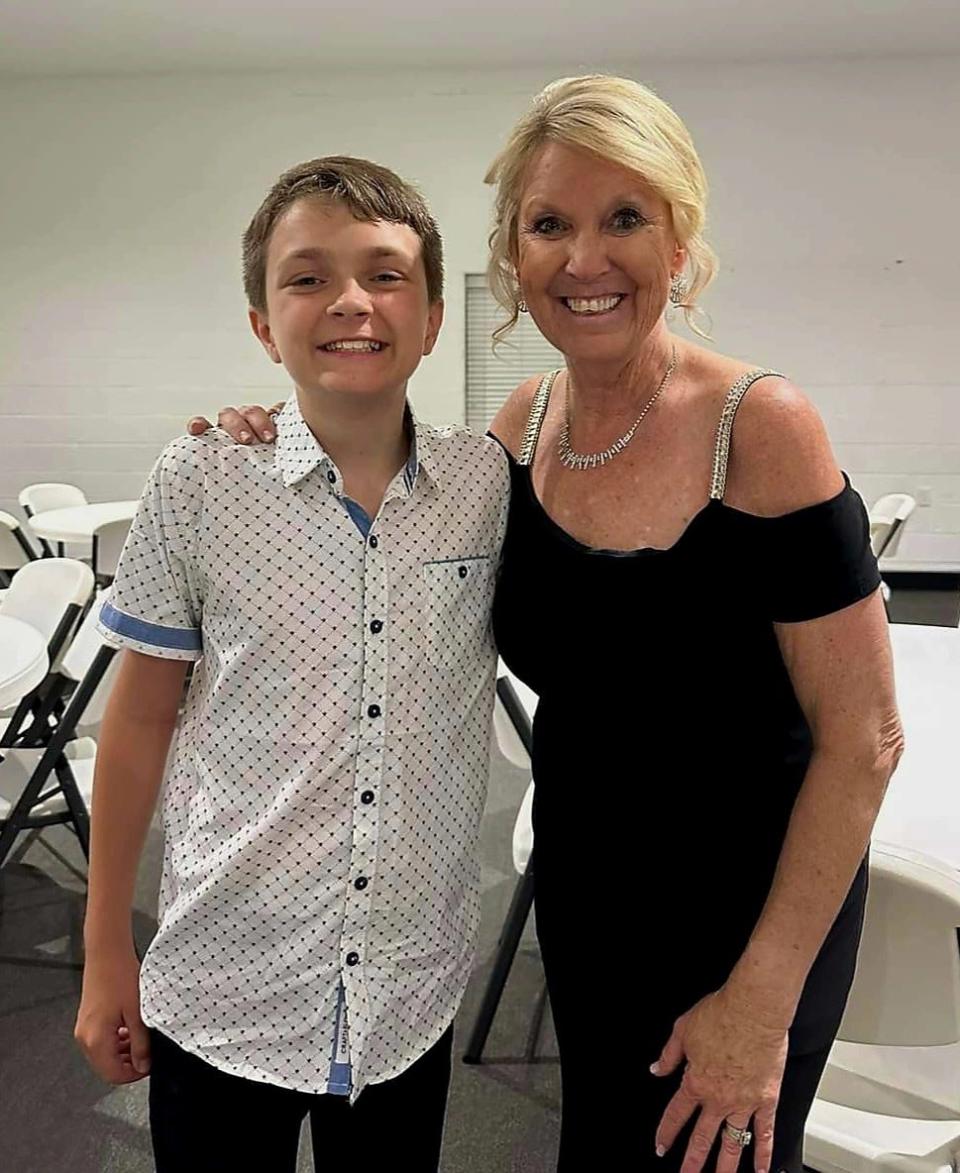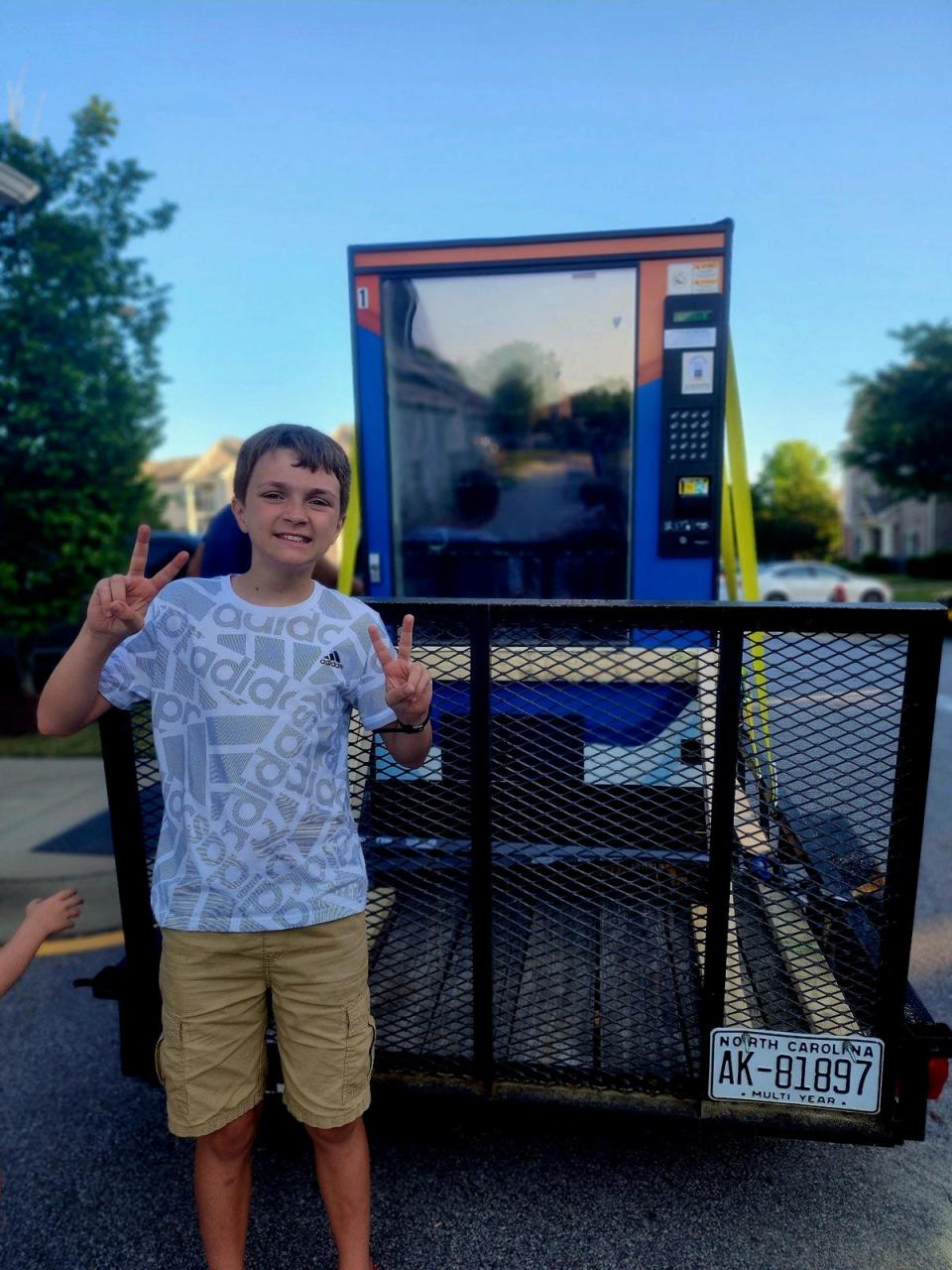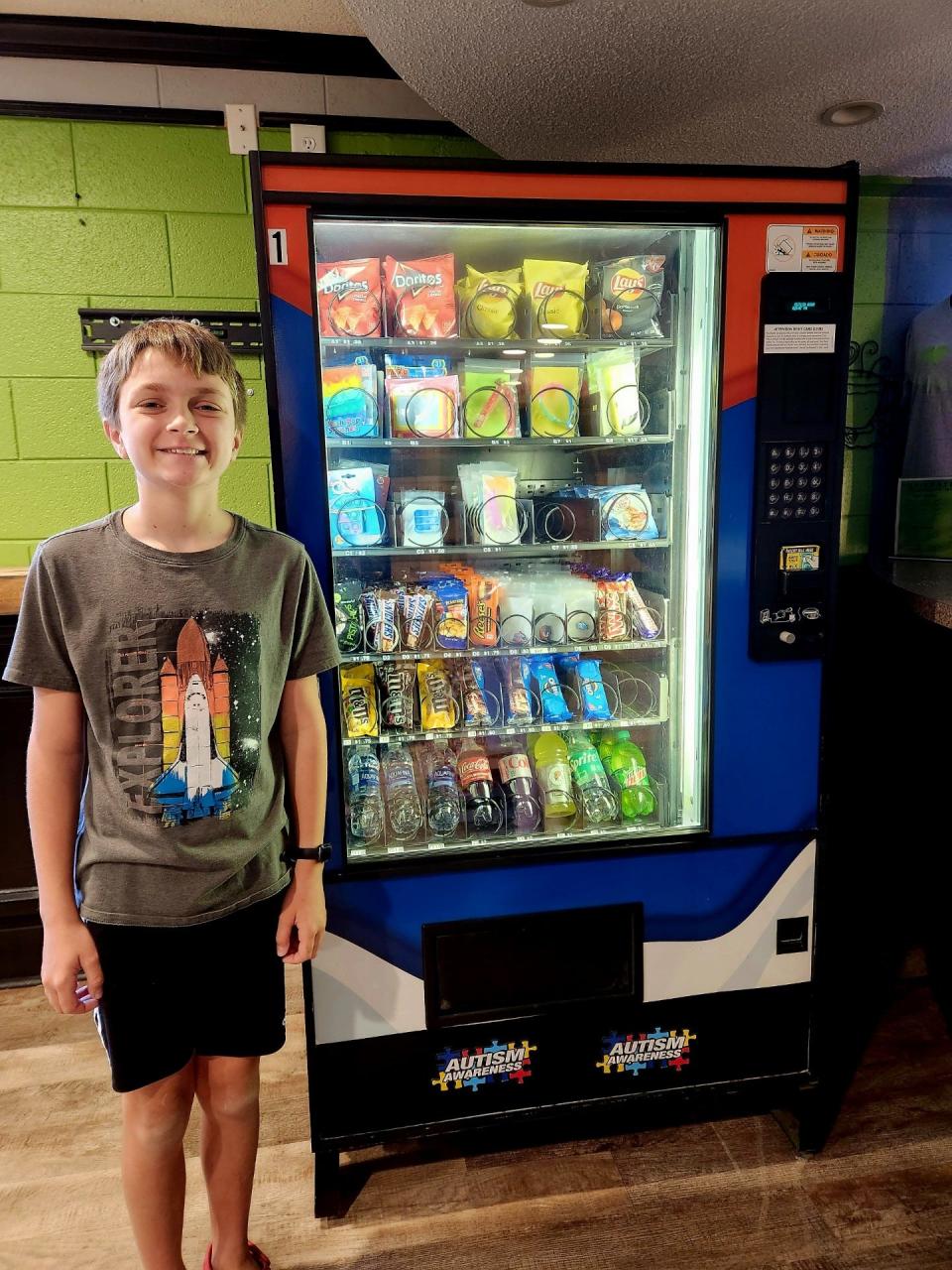Why a Fayetteville boy hopes a vending machine will cover special needs education costs
- Oops!Something went wrong.Please try again later.
When 11-year-old Carter P. learned the state couldn’t pay for his specialized education, he started brainstorming.
This past school year, Carter’s mother, Kelly Johnson, said that Carter attended fifth grade at a Fayetteville school specifically for autistic students — the School of Hope.
Carter was diagnosed with autism in 2019 at the University of North Carolina Medical Center’s Behavioral and Mental Health, his mother said.
He didn’t speak with full sentences until he was almost 5 and struggles with concepts like idioms, metaphors, proverbs, morals of stories and abstract thought, his mother said.
He attended public school from kindergarten through fourth grade, but faced challenges the older he got, she said.

Public school challenges
Despite being pulled out of the public school classroom frequently for interventions, which caused him to miss in-class instruction, Carter was still required to maintain his schoolwork.
“He was doing hours of homework and crying and having panic attacks all the time,” his mother said.
Carter was overwhelmed and struggled to relate to fellow students whose interests changed based on pop culture.
“With Carter, he’s not focused on celebrities or singers or the latest video that just came out,” Johnson said. “He doesn’t like change, so when kids are constantly changing what they like from one week to the next, it can be confusing for him.
As a structured rule follower, kids who didn’t follow rules bothered Carter.
Large classrooms and pep rallies were overstimulating, and Carter would often spend hours in his room once he got home to decompress, his mother said.
School of Hope
His mother found the School of Hope, and Carter was invited for a tour.
“The kids were super welcoming,” she said. “The teachers were friendly.”
The Fayetteville-based private school was founded by Amy and Rob Sparks in honor of their son Jarred, who was autistic and died on June 10, 2011. The school at 111 Burns St. in Fayetteville serves up to 30 children diagnosed with autism.
More: School of Hope for autistic children is a mother's promise kept
More: School for autistic children, mother says, a 'life-changer' for her son
Carter enrolled in classes there in March.
“I like the School of Hope,” he said Tuesday. “It’s a little bit quieter, and there are fewer kids in the class.”
Carter said he’s learning “hard math,” which is algebra.
Johnson said the school provides a specific individualized education plan for her son in which he is in classes with other students based on knowledge level instead of grade level.
Carter excels in math but needs extra help with English, reading and language courses, she said.
Carter said he also likes recess.
“There’s actually a little gym downstairs on the first floor, and it has a lot of hula hoops and a swing,” he said. “There’s a playground on the other side of the parking lot that we can go there as long as it's dry, and at lunch, sometimes we get to ride scooters around.”
Johnson said the school has a balance of equipment for students who need to move and calming areas to help if a student is overstimulated.

School costs and vending machines
Because School of Hope is a private school, Carter entered into a lottery for a state scholarship provided to students with disabilities, but Carter was not selected for the scholarship and is No. 475 on a waitlist.
Tuition, curriculum fees and enrollment fees add up to about $1,400 a month for his family.
Insurance covers speech or occupational therapy but does not cover educational costs, Johnson said.
Carter begged his family not to take him out of the School of Hope and pitched ideas about how to raise money to attend.
“He was going to sell snacks and drinks on the Cape Fear Trail and hope that walkers and runners would buy it, but that wouldn’t be sustainable when school starts,” Johnson said.
With a little more research, they decided to purchase a vending machine.
Johnson said one of the vending machines is at a local church and is stocked with snacks, drinks, fidget bracelets and keychains, Croc charms, sensory toys and highlighters.
More: 'This brick wall': Fort Bragg military families, schools feeling impacts of TRICARE autism cut
More: 'A new low': TRICARE cuts services for children with autism, concerning military families
Carter and his family are also in discussions with a real estate business near Festival Park and Ray Street in the hopes of placing another vending machine downtown.
Mother and son said they hope the machines will offset the cost of Carter's education.


“Since going to the school, he’s said he’s made more friends in two months than his entire life,” Johnson said. “He no longer hates his brain and is happy he has autism. He doesn’t want it to go away anymore.”
Johnson said Carter has recently participated in his first Special Olympics at Methodist University and is preparing to take piano lessons at the School of Hope — activities he never considered before.
“Whenever you see your child’s life changing you do whatever you can to keep them in that safe place,” Johnson said, as her voice cracked with emotion. “That’s what this school has created for kids.”
Staff writer Rachael Riley can be reached at rriley@fayobserver.com or 910-486-3528.
This article originally appeared on The Fayetteville Observer: Fayetteville boy with autism hopes vending machine will pay for school

